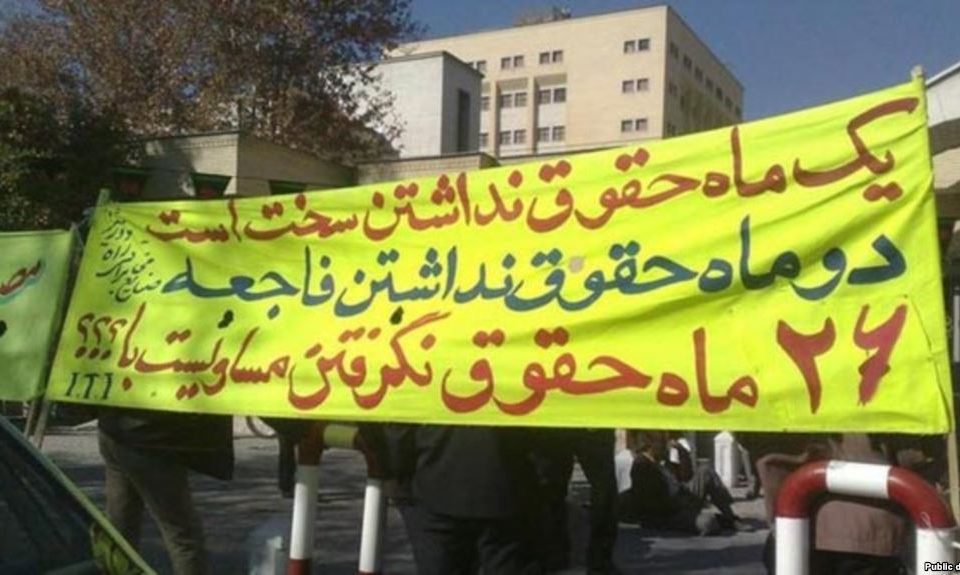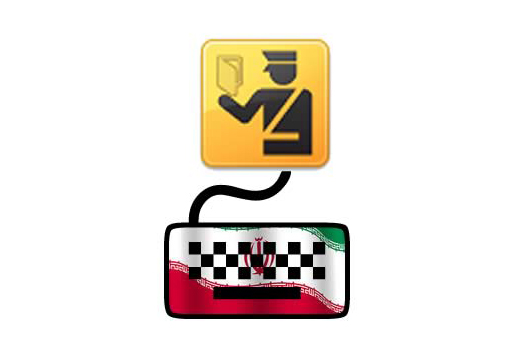
Man in Middle Attacks Dangerous in Iran – Part 2
September 2, 2011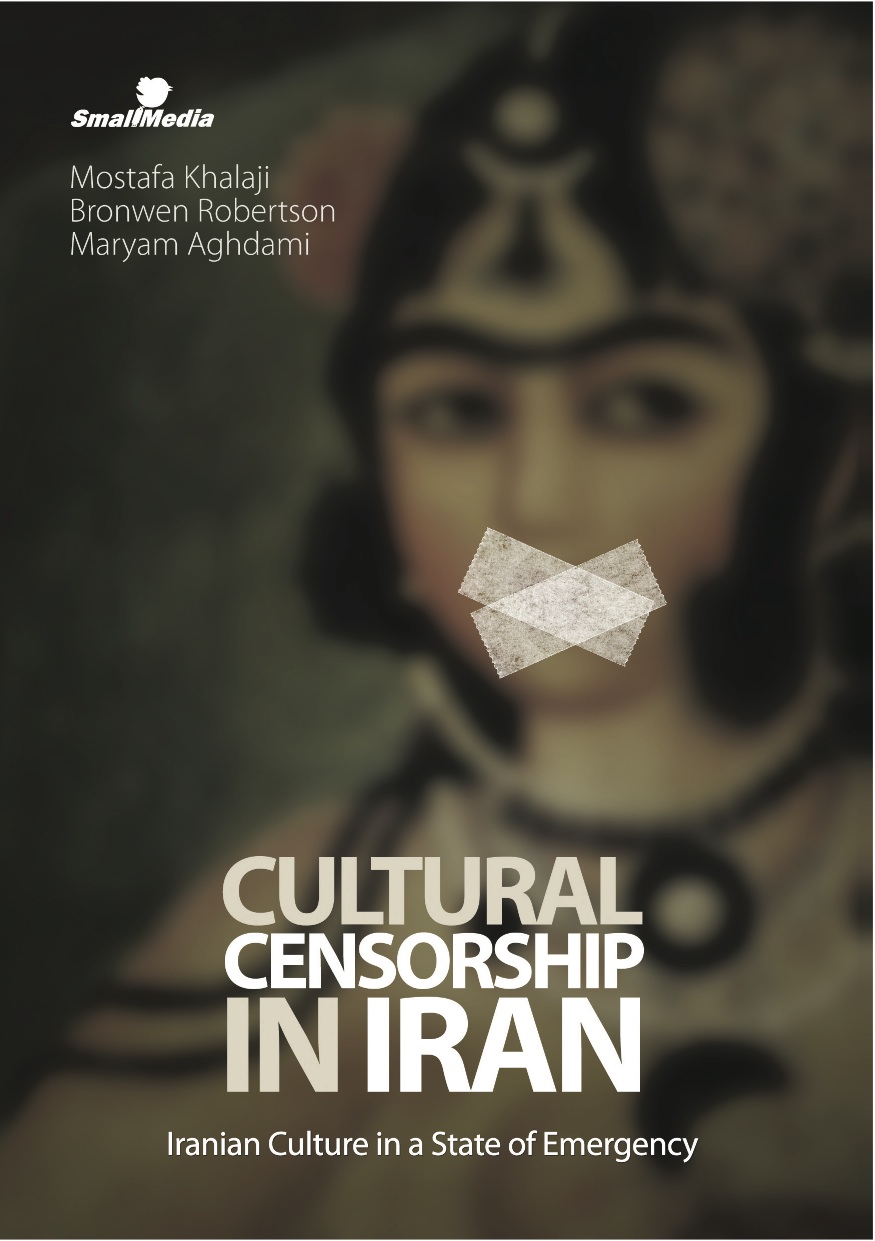
Cultural Censorship in Iran
September 6, 2011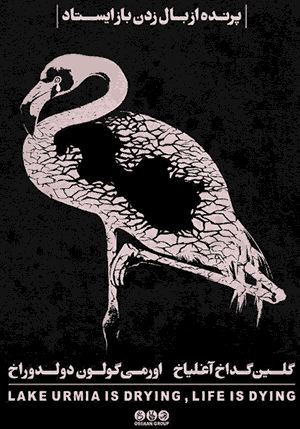
Update: Radio Farda reports that the Parliament in Iran has budget up to $900 million to address the problem.
Six months ago, environmental activists in Iran starting sounding the alarm about the state of Lake Orumiyeh (Urmia). Many began posting about Lake Orumiyeh on Facebook. They urged others to take notice: Lake Orumiyeh, the third largest salt water lake in the world, was drying up. This environmental catastrophe was not receiving the attention needed to force action from the government.
By that time, a number of scientific papers (pdf and here) had recommended creating long-term solutions to the problems of the drying lake, which they warned could become a great a natural disaster for the region as the drying lakebed left behind tons of salt. In effect, creating a salt bomb that would destroy arable land and poison people and wildlife.
Protests about the state of the lake have moved from Facebook to the streets, where they are occuring on a regular basis. Several dozen people have been arrested in Northwestern Iran protesting the government’s inability to ensure the long-term survival of the lake, which is drying up as a result of drought and the man-made diversion of rivers that once flowed into the lake.
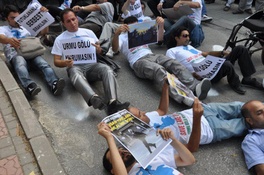
Today’s Zaman reports that protests have spread to Turkey, where environmental activists protested the lake’s destruction by marching to the Iranian embassy in Ankara, carrying signs reading, “The river gives life, parliament orders its death,”. Once there, they lied down on the steps and covered themselves in salt.
Over the years, the volume and surface of the lake has shrunk considerably, not only hurting the region’s tourism and vacation industry, but causing damage to migratory bird populations that live off of the brine shrimp living in the lake. The inhabitants of the region — who are mainly Azeri, an ethnic group distinct from the majority Persian population — have raised some concerns about the state of the Lake in the past. This is the first time, however, that protests on such large scale have taken place.
One of the major reasons for the protests has been the Iranian parliament’s recent refusal to divert the waters of the Aras River to replenish the Lake. The parliament planned, instead, to move Azeri families away from the vicinity of the lake. This move is to ensure their livelihoods and protect them from long term exposure to the salt of the drying lake, which could enter the respiratory systems of people living nearby. The blowing salt has made large swaths of arable land unusable and could make even more land unfit for agriculture. It is estimated that millions of tons of salt will be uncovered if the lake completely dries up.
Hassan Abbasnejad, the director of Environmental Protection in Western Azerbaijan province, which borders Lake Orumiyeh, claimed that 53% of the lake had already dried, according to Radio Zamaneh. What’s left behind is water that is ten times more salty than sea water. Radio Zamaneh’s report further adds:
“The Iranian Environment Organization reports that the crisis at Lake Oroumieh has spun out of control and is quickly destroying its lagoons. The Mehr news agency reports that the 6,000 hectares of salt shores at Lake Oroumieh could cause a salt tsunami capable of destroying vast regions of orchards and agricultural land in Oroumieh.”
There are several online campaigns to save the Lake. A Facebook page under “Oroumieh” has been created by Iranians inside and outside Iran in order to raise awareness about the issue. The page seeks to inform ordinary Iranians of the plight of the people that live near the lake and whose lives and livelihoods are being affected and will continue to be affected if the government does not take action. The page has over 6,000 followers to date and hosts mainly Persian content.
Another page for an organization calling itself “The Caretakers of Lake Oroumieh” has more than 8,000 followers, and provides information that is critical in shaping opinions.
These efforts are surprising given that social networking websites in Iran are regularly censored and participation in any cause even remotely tied to protests can land people in jail.
Persian language blogs have also been busy discussing the issue. ChyChest quotes the Iranian Constitution in order to back protests seeking government intervention to save the lake. Other blogs are posting pictures of the drying lake to give viewers who are put off by “long articles” – as one blogger the writer spoke to said – a better view of just how bad the condition of the lake is.
Protesters have primarily used peaceful means to gain the government’s attention. These protests have been centered in and around Tabriz, home to many Azeri (a language in the Turkic family) speaking inhabitants. Crackdowns on reporting on protests have made it hard to quantify participation, but videos posted online by protesters show hundreds if not thousands of people and the protests are not waning.
There are some signals that the government and the parliament might reverse course on the issue of the lake. The government-owned Fars news reported that twenty two members of Parliament have asked the Presiding Board of Parliament to immediately act to ensure that Lake Orumiyeh does not dry up. The MPs warned that a disaster is in the making and the government needs to act quickly to avert social, political and economic consequences of such a disaster.
Videos:
1. Euronews report on Lake Orumiyeh
2. BBC Video showing the dried up parts of the lake (Persian)
http://www.youtube.com/watch?v=xS0yWA6eIzk
3. Protesting the state of Lake Orumiyeh
4. A dynamic view of the depletion of Lake Orumiyeh can be seen here http://www.lakeurmia.org/
5. New York Times covers the protests over the lake on their Lede Blog
6. Global Voices reports on Orumiyeh protests




